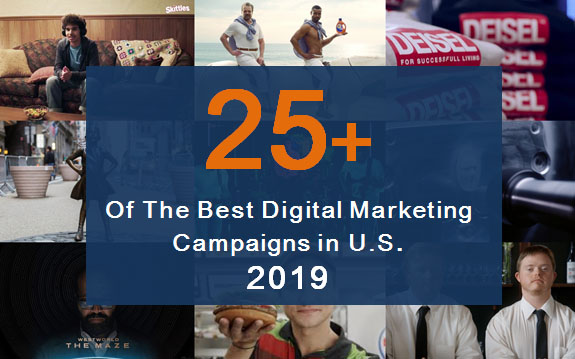How to Boost Your App to Top for Keywords Fast and Effectively in 2022
Mobile Marketing | Oct 19, 2022
In the following article, we would like to talk about the main mistakes the ASO marketing managers may do when they work with keyword installs to boost the app to the top for search requests in Store. We will consider the whole process of app promotion from keyword research to work with rates and reviews.
The support team from mobile promotion service keyapp.top has more than 7 years of experience and will show a huge variety of cases as well as marketing strategies to achieve the best results. Continue reading.
Keyword Promotion And App Store Optimization: Why Do You Need It?
Keyword promotion is a type of app promotion where the application is boosted to the top positions for search requests with the help of motivated installs. This makes the app more visible to users, which, accordingly, can bring more organic users.
As it is known, organic users are the most valuable source of traffic for any app on the store. So if to answer the question “What is keywords promotion?”, it is surely possible to say that it is a way to get more organic users.
Nevertheless, keyword promotion is not as easy a process as it may seem at first sight. It consists not only choosing of the service to use and adding installs to the app, it is also of app analysis and promotion strategies. To be honest, keyword installs may not help an app to attract real organic users even if to boost it to op for the most traffic keywords if no work with an app was done.
By work, we mean that first of all it is needed to pay attention to App Store Optimization. This is a process that helps the app, firstly, increase the conversion rates, secondly, get into the index for the keywords.
Both these factors influence the success of keyword promotion, as it is needed to keep in mind that even if the app occupies the top position for relevant search requests, it may not receive traffic if the app itself is not attractive, has a low rate, and a lot of negative reviews.
Remember, that before starting any kind of promotion, it is important to optimize the app. If this part is done, we can start with a discussion of how to boost the app to the top for search requests fast and effectively. By the way, read our article about ASO to get what to optimize before the app is published.
App Store Optimization: Promote The App Only For Relevant Keywords
To be honest, it may seem that this rule is not so important, but according to our experience, focusing on non-relevant keywords may take the app promotion to a dead end. The explanation is quite easy: the app can achieve top positions even for non-relevant keywords, but is it possible that the application receives organic installs from such search requests? In most cases, no. So the logic is the next: the funds and time for promotion are spent, and the position is achieved, but the main result which is expected, organic installs, is not observed.
It is necessary to keep in mind that when a user types a particular request in the search box on the store, they know what they are looking for and which app would like to download. So even occupying the top of the search with irrelevant keywords will not bring organic traffic.
Let’s imagine that the app is about pill tracking, but is promoted for the keyword “hospital”. In such a case, the keyword is completely irrelevant, although it may seem that the app is connected to the hospital, most probably the user, looking for the word “hospital”, would like to download a completely different app.
So we can make a conclusion, that the top 1 for irrelevant search requests won’t increase the conversion rate to install.
The second issue with non-relevant keywords is that in most cases it is difficult to boost the app to the top of the search for such requests. Anyway, the store’s algorithm understands that the app may be connected with particular keywords and top positions will be occupied by applications that are more relevant.
To sum up it is necessary to mention that promotion for non-relevant keywords:
- is difficult, as the stores’ algorithms pay attention to this factor and put to top the apps which have more connection with the particular keyword
- will not bring the expected result, in the case of keyword promotion it is organic traffic, as real users won’t download the app which they are not looking for.
Pay Attention To The Store You Work With
In this app store optimization article, it should be mentioned that this factor is extremely important if you want to achieve successful results with keyword installs. The issue is that both Google Play and AppStore algorithms work in completely different ways.
Let’s compare two campaigns we had conducted for Google Play and AppStore apps to see what we mean with the help of examples.

Keyword promotion campaign for Google Play App

Keyword promotion campaign for AppStore App
These are the screens that show the daily distribution of installs that which app gets for the particular keyword as well as the graphics with the app increase progress for this search request. As you may see the daily distribution of installs as well as days in the campaign are completely different for these two stores. This can be explained by the algorithm. If to describe briefly:
- Google Play requires more days in the campaign for the keywords, as their algorithm needs to be shown that the app gets the installs for the request for a particularly long (usually 7-10 days) period of time
- AppStore doesn’t require the keyword to be promoted for a long period of time. It is completely enough to add the installs for 1-2 days and it will be already possible to observe the results.
- Google Play usually needs a lower amount of installs. Let’s imagine that the app occupies the 100th position for the keyword. In such a case, it will be completely enough to add 5-15 installs daily for 7-10 days to check how the app and keyword react to the promotion.
- AppStore usually requires higher amounts of installs. If the app occupies the 100th position for the keyword, it would be better to add 50-60 installs for 1 day than spread them for 7-10 days as for Google Play.
Paying attention to the store algorithm work will make the promotion process more efficient, as this will save time and funds spent.
Related Article: Check the Top 10 Android Video Editor Apps in 2022
Promote The App For The Semantic Groups Of Keywords
It may seem that this doesn’t influence the success of the app keywords promotion, but actually, the situation is completely different especially if we are discussing Google Play. As it is known, for Google Play apps it is extremely important to promote the app for the group of core keywords simultaneously.
In such a way Google algorithm understands that the application is increasing in the positions for the related requests and makes the boosting faster.
Compare these two campaigns and the graphics of the keyword “bitcoin” increase for two different apps. In the first one, the app was promoted for one keyword “bitcoin” only. The starting position was top 11 and after the campaign, the position increased to the 7th.


The second app was promoted for the same main keyword “bitcoin” but alongside other keywords with a similar core. Totally 4 keywords were in the campaign and we may see that the app got top 1 for all of them.

The following screenshot shows the increased graphic for the main keyword we were focused on, “bitcoin”. The starting position was 10 and finally, it managed to get top 1 at the end of the campaign.

To sum up, it is possible to observe that the promotion of the semantic groups of keywords for Google Play may give much faster and more stable results.
Pay Attention To The Rates And Reviews The App Gets
Have you ever thought about how rates and reviews influence the app conversion rate and amount of organic traffic? Of course, first of all, we need to remember that the app’s reputation influences the organic users’ decision to download the app.
But do not forget that rates and reviews as well have an influence on the success of the keyword promotion because of the store’s algorithms. It is necessary to say that both Google Play and AppStore pay attention to the app’s reputation when they decide to increase the positions in the list or not, so we would like to mention that the higher the rate is and the more positive the reviews are, the more chances the application has to boost to top 1.
Of course, it is still possible to promote the app at a low rate and even get successful results, but it may take a lot of resources, and then bring no organic traffic even from top positions, as users won’t want to install the application with a low rating. So before starting any kind of promotion and while conducting it, make sure that the app reputation is worked out.
At this stage, we would like to pay attention to examples of two apps’ promotions for the same keyword “budget planner” and region, but both applications have different ratings. As you may see, the first app has an overall rating in the US of 4.4 (remember that the maximum is 5 for both stores).

The app was promoted for the keyword “budget planner” with a 5-day campaign and the starting position was 122. After the campaign, it managed to achieve the 12th rank, so we hit the top 20, which may be really difficult for popular keywords such as this one. The graphic of the increase is on the next screen.

The second promoted app has a rating of 3.9 in the US and was promoted for the same keyword with the same strategy and amount of installs.

This graphic shows that the starting rank was 121, so only 1 position higher than the previous app for the same keyword, but the results are already completely different. It managed to achieve rank 51 and the app didn’t even hit the top 20.

Of course, we can assume that both apps have different app metrics and in-app activity levels, but anyway we can also make an assumption that rating can influence the success of the keyword promotion process.
To sum up, we would like to point out that the success and effectiveness of app keyword promotion do not completely depend only on the keyword installs, and quality of traffic you buy, etc, they also are influenced by other factors consisting of the right chosen promotion strategy, app metrics, conversion rates, and app reputation.
Try to work with the app to increase all these factors and this will help to boost your app to the top of the list for search requests fast and effectively.





